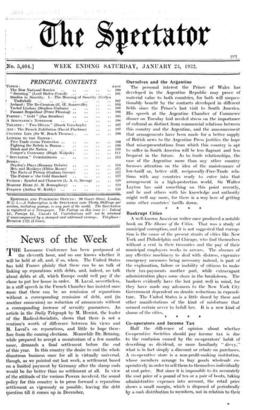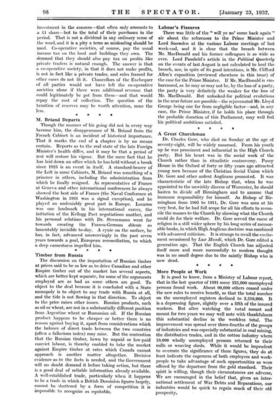Co-operators and Income Tax
Half the difference of opinion about whether Co-operative Societies should pay income tax is . due to the confusion caused by the co-operatorS' habit Of describing, as dividend, or more familiarly "divvy," what is in fact simply a discount or rebate on purchases. A co-operative store is .a non-profit-making institution, whose members arrange to buy goods wholesale co- operatively in order to sell them to themselves individually at cost price. But. since it is impossible to fik accurately the cost price of a -pound of tea or a pair of boots, taking administrative expenses into account, the retail price shows a small margin,. which is disposed of periodically by a cash distribution to-members, not in relation to their investment in the concern—that often only amounts to a £1 share—but to the total of their purchases in the period. That is not a dividend in any ordinary sense of the word, and it is a pity a term so misleading should be used. Co-operative societies, of course, pay the usual income tax on the land and buildings they own. The demand that they should also pay tax on profits like private traders is natural enough. The answer is that a co-operative society, in that it does not make profits, is not in fact like a private trader, and rules framed for other cases do not fit it. Chancellors of the Exchequer of all parties would not have left the co-operative societies alone if there were additional revenue that could legitimately be got from them—and that would repay the cost of collection. The question of the taxation of reserves may be worth attention, none the
less. * • * *





































